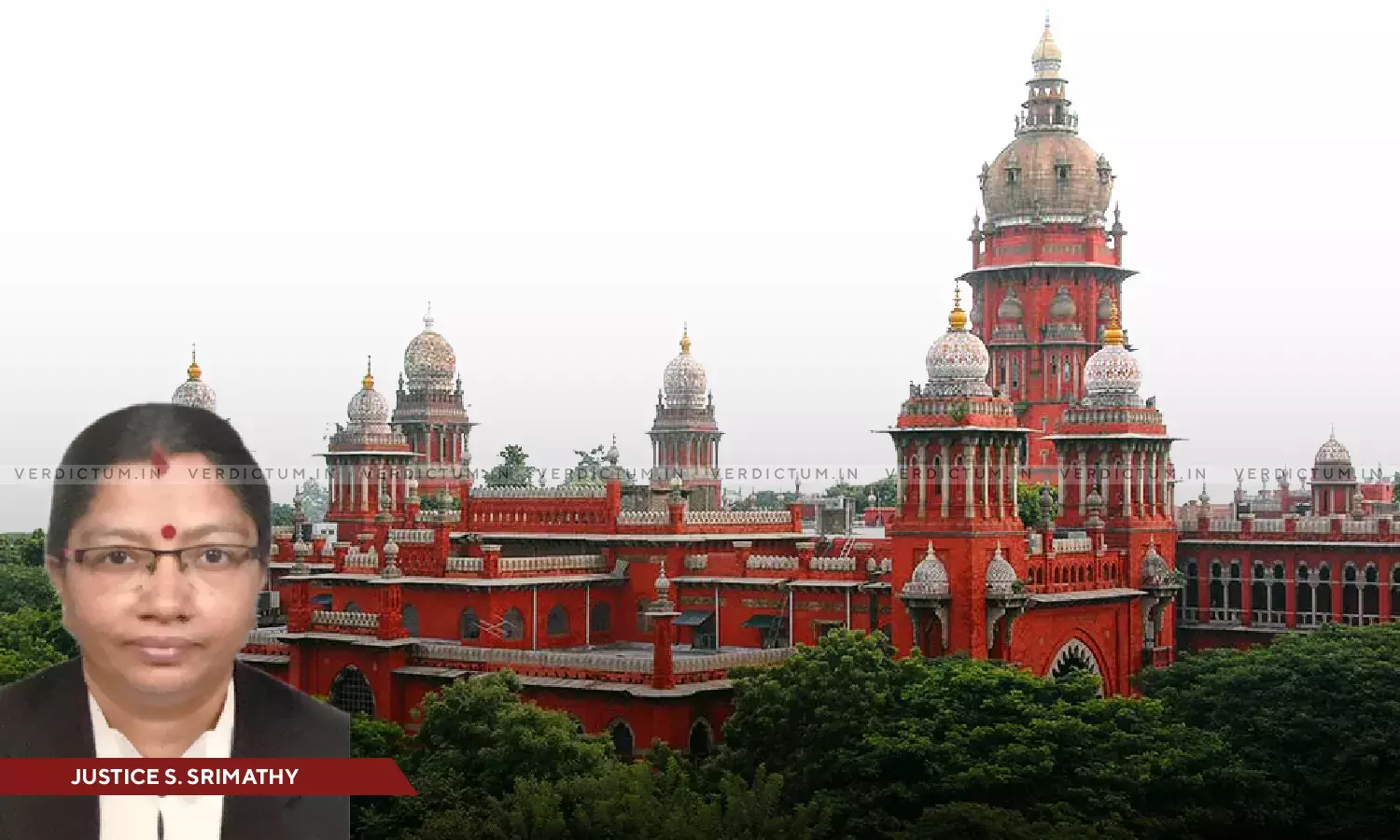‘Temple Is Not Picnic Spot’: Madras HC Issues Directions Restricting Entry Of Non-Hindus Inside Hindu Temples

The Madras High Court has directed the Tamil Nadu government and the State Hindu Religious and Charitable Endowments (HR&CE) Department to enforce restrictions preventing non-Hindus from entering areas beyond the flagpole at the Palani temple and other temples in Tamil Nadu.
A petition was filed seeking the court's intervention to install prohibitory boards. The petitioner, D Senthilkumar, organiser of Palani Hill Temple Devotees Organisation, recounted an incident where a Muslim family, wearing burqas, sought entry to the temple premises, claiming there was no signage barring non-Hindus.
A bench of Justice S. Srimathy emphasized that temples are not leisure spots and ruled that, like other communities, Hindus have the right to practice their religion without interference.
The Court ordered:
- The respondents shall install Boards indicating that “Non-Hindus are not allowed inside temple after Kodimaram” in the entrance of the temples, near Kodimaram and at prominent places in the temple.
- The respondents are directed not to allow the Non-Hindus who do not believe in Hindu religion.
- If any Non-Hindu claims to visit particular deity in the temple, then the respondents shall obtain undertaking from the said Non-Hindu that he is having faith in the deity and he would follow the customs and practices of Hindu religion and also abide by the Temple customs and on such undertaking the said Non-Hindu may be allowed to visit the temple.
- Whenever a Non-Hindu is allowed based on the undertaking the same shall be entered in the register which shall be maintained by the temple.
- The respondents shall maintain the temple premises by strictly following the agamas, customs and practices of the temple.
Senior Advocate N.Anantha Padmanabhan for Advocate R.M. Arun Swaminathan appeared for the Petitioner, Additional Advocate General Veera Kathiravan assisted by Advocate R.Ragavendran appeared for Respondent 1& 2 and Advocate R.Baranidharan appeared for Respondent 3 with Advocate Abinav Parthasarathy (Intervenor).
The Court rejected the government's concern that installing such boards might offend visitors' religious sentiments, asserting that not prohibiting non-Hindus could hurt the sentiments of Hindu believers. The Court said, “If a non-Hindu is not having faith and decline to follow the customs and practices of the Hindu religion and decline to follow the Temple Customs, then the said non-Hindu cannot be allowed and hence there is no question of hurting his sentiments. On the other hand if the non-Hindu who declines to follow the customs and practices of the Hindu religion and decline to follow the Temple Customs is allowed inside the temple, it would affect the sentiments of the large number of Hindus who practices the faith as Hindu reverently. This would affect the right of Hindus guaranteed under the Constitution of India.”
The Court stressed Hindus' right to freely practice their religion, emphasizing that protecting Hindu temples, customs, and practices is the responsibility of the Hindu Religion & Charitable Endowment Department.
The Court criticized the misplaced sympathy and worry for non-Hindu sentiments expressed by the respondents, stating that such concerns were neglecting the rights and sentiments of Hindus. The Court added, “The respondents are worried about the sentiments of non-Hindu who is not having faith in Hindu religion. By pleading so the respondents are failing to protect the sentiments of the Hindus. Infact the Hindu Religion & Charitable Endowment Department is mandated to protect the Hindu religion, Hindu temples, its customs and practices, temple customs etc. The respondents are having misplaced sympathy and misplaced worry on sentiments of Non-Hindus.”
While acknowledging the Temple Entry Authorisation Act, 1947, aimed at eliminating discrimination within the Hindu community, the Court noted its lack of provisions regarding the entry of non-Hindus.
The Court cited incidents, including one at Arulmighu Brahadeeswarar Temple, where individuals from another religion treated the premises as a picnic spot, consuming non-vegetarian food inside. The Court concluded that such incidents interfere with the fundamental rights of Hindus guaranteed under the constitution, emphasizing the right of Hindus to maintain their temples.
The Court said, “The aforesaid Articles has guaranteed right to profess and practice their own religion. The people belonging to Hindu religion has right to profess and practice Hindu religion. Likewise people belonging to other religions have right to profess and practice their religion. But the customs and practice of their respective religion cannot be interference with and any interference ought to be curtailed. The Temple is not picnic spot or tourist spot.”
Cause Title: D. Senthilkumar v. Government of Tamil Nadu & Ors.
Click here to read/download Judgment


